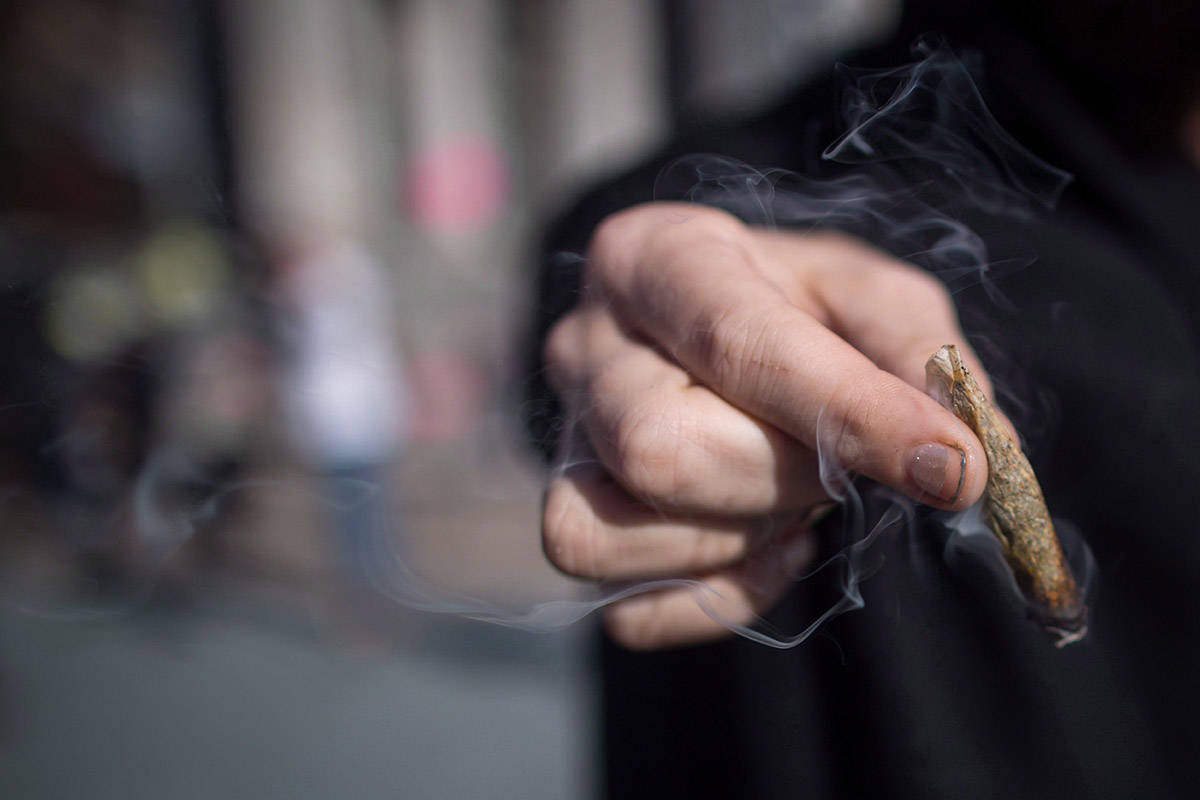Cannabis could be a useful harm reduction strategy for young people struggling with addiction, according to new research out of B.C.
Two recently published studies from researchers with the BC Centre on Substance Use and the University of British Columbia examined cannabis use behaviours among young people and other people who use drugs in downtown Vancouver.
Together, these studies suggest that cannabis could be effective both as harm reduction as well as a substitute for illicit opioid use.
The findings come as B.C. is seeing its worst stretch in history for fatal overdoses, due to a increasingly toxic drug supply and social contact restrictions amid COVID-19 driving many to use alone.
“Contrary to common perception, many of the young people we interviewed shared that they used cannabis not for recreation but for therapeutic purposes, often to help reduce or stop altogether the use of other substances,” said Dr. Danya Fast, research scientist at the centre.
ALSO READ: Want to grow your own cannabis? Here’s a few easy steps to success
“While some youth in our study identified negative effects of intensive cannabis use, policy and provider education and training should be responsive to the ways many youth in our setting are actively using cannabis to navigate their needs.”
In the first study, published in PLOS ONE and led by Fast, researchers interviewed youth who were street-involved about their cannabis use, finding that the vast majority engaged in daily cannabis use at the same time as they cycled on and off other substances that were perceived as much more harmful—primarily alcohol, fentanyl, heroin, and crystal methamphetamine.
Fast’s team interviewed 56 young people recruited from a cohort of street-involved youth in Vancouver between 2017 and 2019.
Most reported deriving significant pleasure from the use of cannabis, though no participants in the study described using cannabis for purely recreational purposes. In fact, a number of participants explicitly framed cannabis as a form of mental health and substance use treatment that was more effective and “healthier” than the long-term use of psychopharmaceuticals and medication-assisted substance use treatment, such as methadone.
As a teen, Scarlett, a co-author of the study and peer research associate with centre’s At-Risk Youth Study, was prescribed what she describes as a “cocktail” of medications to treat her diagnosed attention deficit hyperactivity disorder and oppositional defiance disorder.
None worked and eventually she turned to using illicit substances to treat her conditions, including injecting meth and heroin. Eventually, she obtained an authorization for medical cannabis, which she credits with helping her stop using illicit substances altogether.
“Cannabis, for me, was an exit ramp from using other, more dangerous drugs and helped make me feel better overall,” she says.
In the second study, published in the American Journal of Public Health, researchers found that six month periods of at-least-daily cannabis use had significantly higher rates of ceasing to inject drugs.
Dr. M-J Milloy, senior author of that research, said that a growing body of evidence supports Scarlett’s experience.
“We’re learning more and more in our research how people who use drugs are using cannabis for therapeutic reasons, such as addressing chronic pain or coping with withdrawal,” Milloy said.
“Today’s findings are consistent with this research, showing that some people who use drugs are limiting one of the driving risks for overdose—injecting opioids from the poisoned drug supply—by using cannabis.”
Milloy and his team evaluated the impact of frequent cannabis use on injection cessation and injection relapse among 2459 people who inject drugs interviewed every six months from 2005 to 2018.
In any six month period, they found that at-least-daily cannabis use was associated with a 24-per-cent increase in the likelihood a participant stopped injecting illicit opioids, such as heroin or fentanyl, during that period.
They did not observe statistically significant relationships with injection stimulant cessation of methamphetamine or cocaine nor injection relapse (beginning to inject again after at least a six month period of no injection drug use).
“The implications of these findings are important given the risks associated with the toxic illicit drug supply that is fueling the overdose crisis,” he said, adding that these findings underline the need for researchers to test the life-saving potential of cannabis.
“Meanwhile, our policymakers should make sure they are facilitating access to cannabis as harm reduction by, for example, reducing barriers to legal cannabis or supporting community groups distributing cannabis to people at risk of overdose.
“Our findings suggest using cannabis for harm reduction has the potential to save lives.”

